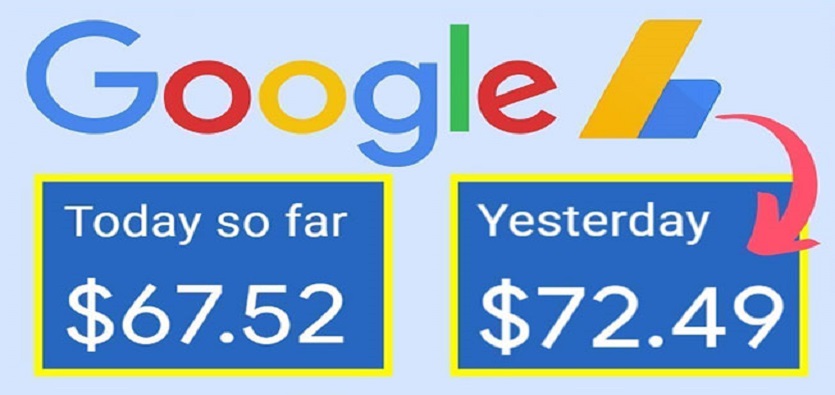Credit card rewards have historically been given out in three types of rewards currencies — points, miles or cash back. However, cryptocurrency is now a rewards currency, too, thanks to the launch of several new rewards credit cards over the last few years. The process is fairly simple and works similarly to a traditional cash-back program. You earn a percentage of your purchases back in U.S. dollars, which is then used to buy crypto (usually automatically).
The initial appeal of crypto credit cards was the “high risk, high rewards” aspect of crypto investing. For example, cardholders in the midst of the crypto frenzy believed they could earn cash back with a crypto credit card, move their rewards into an active digital currency then grow their rewards haul exponentially as the value of their crypto exploded.
However, we now know that the value of many cryptocurrencies has plummeted and that even values for the most popular types of crypto are down considerably from all-time highs. As an example, the price of a single bitcoin surged to $64,400 in November of 2021 but dropped to less than half of that ($30,200) as of this writing. Meanwhile, the price of a cryptocurrency called Ethereum also reached a high of $4,811.70 in November 2021 and is now worth less than half of that at $2,092.29.
The case for Crypto rewards cards
Of course, that’s not what people who opt for crypto credit cards hope for. The case for crypto credit cards is that, unlike other types of reward currencies, the value of crypto has the potential to increase. Not only that, but people who want to invest in Crypto but don’t have the cash to do so can get started with a crypto credit card and begin building their digital assets by using their cards for regular spending and bills.
The Upgrade Bitcoin Rewards Visa® Credit Card* provides a perfect example of how this could work. Essentially, this card rewards its customers with 1.5 percent cash back in Bitcoin as they pay off their purchases. This means someone could use the card for $1,000 in spending and bills, pay their balance off and get $15 in Bitcoin deposited into their rewards account. This card doesn’t charge an annual fee either, and interest charges don’t apply if you never carry a balance from one month to the next.
Imagine you got this card and used it for $2,000 per month in regular spending and bills over the course of a year, and you paid off the entire $24,000 in balances as you went so you never carried debt from one month to the next. In this scenario, you would have earned $30 in Bitcoin per month or $360 in Bitcoin over 12 months.
With a regular rewards card, that $360 in cash back wouldn’t have the potential to grow in value. But let’s say the value of Bitcoin increased 20 percent over the year you had the card. In that case, your $360 rewards haul would be worth $432. If the value of Bitcoin increased by 50 percent, your reward value would be $540.
The other side of the Crypto coin
Of course, the opposite is also true, and this is evidenced by all that has happened in the crypto world over the last few years. Where the value of cryptocurrency could increase dramatically, it can also drop, causing your rewards value to drop right along with it.
If someone had the Upgrade Bitcoin Rewards Visa in November of 2021 and had earned $360 in rewards at the time but didn’t spend them, for example, the value of their rewards would now be worth less than half of that.
Of course, the idea of investing in credit card rewards to help them grow isn’t new, and credit cards that automatically invest your cash back in the stock market have existed for years. Fidelity, for example, launched a credit card in 2016 that offers unlimited 2 percent cash back when deposited into an eligible Fidelity account, like a brokerage account or an IRA.
“You could get potential upside with less risk by doing something like buying an S&P 500 index fund with your cash back rewards or through cards offered by the likes of Fidelity and SoFi,” says Bankrate senior credit card industry analyst Ted Rossman. “But I still think crypto rewards cards appeal to a certain audience.”
There’s also a reason to be leery of platform-specific cryptocurrency credit cards, since they don’t really do anything for you you can’t do yourself. For example, you could instead opt for a cash-back credit card with the highest possible rate, then redeem your rewards for cash back and use the funds to buy cryptocurrency yourself. In that case, you could use any platform you wanted to buy your crypto, and you could even store it using a cold wallet that keeps your information and private crypto keys off the web.
And either way, you just can’t beat the versatility of a traditional cash-back card. For some, the ability to spend cash back on anything — whether that’s crypto, a grocery store trip, or a splurge purchase — is better than being locked into crypto, even if that means manually investing your earnings and paying the typical USD to cryptocurrency conversion fees.
How much can you earn with a Crypto rewards card?
We already mentioned how the Upgrade Bitcoin Rewards Visa gives you 1.5 percent back in Bitcoin as you pay your purchases off with no annual fee. However, there are other crypto credit cards to be aware of and consider.
For example, the Gemini Credit Card®* lets you earn 3 percent back on dining, 2 percent back on groceries, and 1 percent back on all other purchases. There’s no annual fee for the Gemini Credit Card, and you can opt to earn rewards in bitcoin, Ethereum, or 40+ other cryptocurrencies currently available on the Gemini platform.
Then there’s the Venmo Credit Card*, which offers 3 percent back in your top eligible spending category, 2 percent back in the next top spending category and 1 percent back on other purchases. The eight flexible spending categories that qualify for bonus rewards include bills and utilities, dining and nightlife, entertainment, gas, grocery purchases, health and beauty, transportation and travel.
The Venmo Credit Card doesn’t have an annual fee, and rewards can be converted into bitcoin, Ethereum, bitcoin cash, or litecoin.
The Bottom line
Only you can decide if a crypto credit card is a good idea or not, but you really should compare the top crypto cards to regular cash-back credit cards before you make a decision. Instead of getting a crypto-specific card, you could always sign up for a cash-back card that earns a flat 2 percent back with no annual fee, then invest your rewards into any cryptocurrency you want with a platform of your choosing.
Also, know that the jury is out on whether crypto is on the rise or doomed to fail in the long run. Whether you should invest in crypto is a larger conversation, but if you are optimistic about crypto’s future (or even just crypto-curious), these rewards cards offer a fairly low-risk way to put some skin in the game.
*Information about these cards has been collected independently by Bankrate.com. The card details have not been reviewed or approved by the card issuer.










